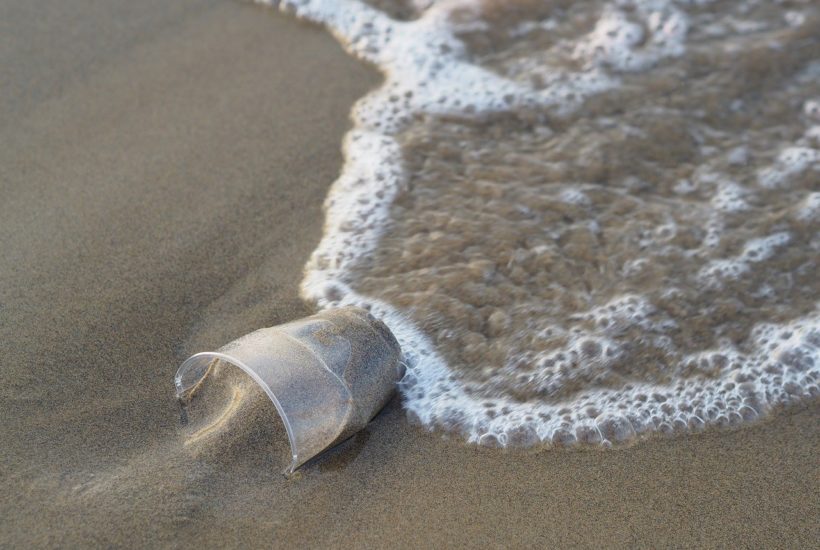Africa
Institute for Ocean Plastics Recycling (IFOPR) plans subsidiary in Africa
The founders of the Institute for Ocean Plastics Recycling are still looking for financing partners or small donors for their purpose. As of February 2021, the IFOPR is officially authorized to issue donation receipts as a recognized non-profit organization – and is planning a crowdfunding campaign in the medium term to raise funds. IFOPR plans to open a subsidiary in Africa.

The Institute for Ocean Plastic Recycling (IFOPR) gGmbH, founded in November, plans to be represented by a subsidiary in Africa in the near future. Together with partners from the business sector, machines for the sustainable recycling of marine litter are to be brokered and deployed on land – among others in Gambia, Ivory Coast, Ghana, Sierra Leone, Liberia, Togo, or Cameroon.
That is an intermediate step for the IFOPR: “Currently, we do not yet have the funding to achieve our real goal: We want to analyze the world’s largest garbage vortex (‘Great Pacific Garbage Patch’). In a second step, we will launch the pilot project ‘Silicon Harbour’ and rid the world’s oceans of garbage step by step,” announced IFOPR co-founder Herbert Hornung.
“However, during our explorations, we became aware of the need for sustainable waste recycling on the African continent.” Despite the ban on plastic bags, waste generation in Africa remains high. The IFOPR wants to process this waste locally in a sustainable way to produce electricity, hydrogen or crude oil. The knowledge and technologies to do this already exist and just need to be put to use.
Find more details about the Institute for Ocean Plastic Recycling and read other important economic news with the Born2Invest mobile app.
At the same time, the application for funding for the “Silicon Harbour” pilot project is continuing
The IFOPR needs about $2.1 million (€1.8 million) for the in-depth analysis of the “Great Pacific Garbage Patch.” A total of five professors and two doctoral students from the University of Applied Sciences Würzburg-Schweinfurt (FHWS) are assisting with the application process: “Applying for government funding at the German and European level is extremely complex and costs at least 200 working hours per application,” said IFOPR co-founder Peter Bales. “However, the chance of actually receiving a grant is only 15 percent.”
In addition, many funding programs are only approved if companies contribute at least 50 percent of the costs: “Industry is usually only willing to do this if a marketable product is created at the end of the program,” Bales has learned. “Currently, that’s not the case for us, because we first have to do basic research before we can start projecting our Silicon Harbour or building suitable ships.” In other words, to project Silicon Harbour, the IFOPR must analyze the composition and recyclability of waste in the oceans. This analysis will be carried out by the scientific advisory board of IFOPR gGmbH, which includes the Fraunhofer-Gesellschaft, the Süddeutsche Kunststoffzentrum (SKZ) and the University of Applied Sciences Würzburg-Schweinfurt (FHWS).
The founders are still looking for financing partners or small donors for this purpose. As of February 2021, the IFOPR is officially authorized to issue donation receipts as a recognized non-profit organization – and is planning a crowdfunding campaign in the medium term to raise funds.
In addition, the IFOPR is planning to launch the online service “Oceanpedia” together with the FHWS. Via an app or website, all people internationally who are interested in the topic of marine pollution can network with each other to exchange existing and new knowledge as well as experiences. The goal: a worldwide community of marine conservationists. In the database, the IFOPR also wants to list all companies that manufacture sustainable products from recycled plastic.
__
(Featured image by flockine via Pixabay)
DISCLAIMER: This article was written by a third party contributor and does not reflect the opinion of Born2Invest, its management, staff or its associates. Please review our disclaimer for more information.
This article may include forward-looking statements. These forward-looking statements generally are identified by the words “believe,” “project,” “estimate,” “become,” “plan,” “will,” and similar expressions. These forward-looking statements involve known and unknown risks as well as uncertainties, including those discussed in the following cautionary statements and elsewhere in this article and on this site. Although the Company may believe that its expectations are based on reasonable assumptions, the actual results that the Company may achieve may differ materially from any forward-looking statements, which reflect the opinions of the management of the Company only as of the date hereof. Additionally, please make sure to read these important disclosures.
First published in RecyclingPortal, a third-party contributor translated and adapted the article from the original. In case of discrepancy, the original will prevail.
Although we made reasonable efforts to provide accurate translations, some parts may be incorrect. Born2Invest assumes no responsibility for errors, omissions or ambiguities in the translations provided on this website. Any person or entity relying on translated content does so at their own risk. Born2Invest is not responsible for losses caused by such reliance on the accuracy or reliability of translated information. If you wish to report an error or inaccuracy in the translation, we encourage you to contact us.

-

 Biotech2 weeks ago
Biotech2 weeks agoTwogee Biotech Advances Industrial Enzyme Solutions for Circular Production
-

 Crypto3 days ago
Crypto3 days agoUniswap and BlackRock Partner to Launch BUIDL in DeFi
-

 Cannabis1 week ago
Cannabis1 week agoScientifically Verified F1 Hybrids Set New Benchmark for Indoor Cannabis Yield and Consistency
-

 Fintech6 days ago
Fintech6 days agoImpacta VC Backs Quipu to Expand AI-Driven Credit Access in Latin America

























